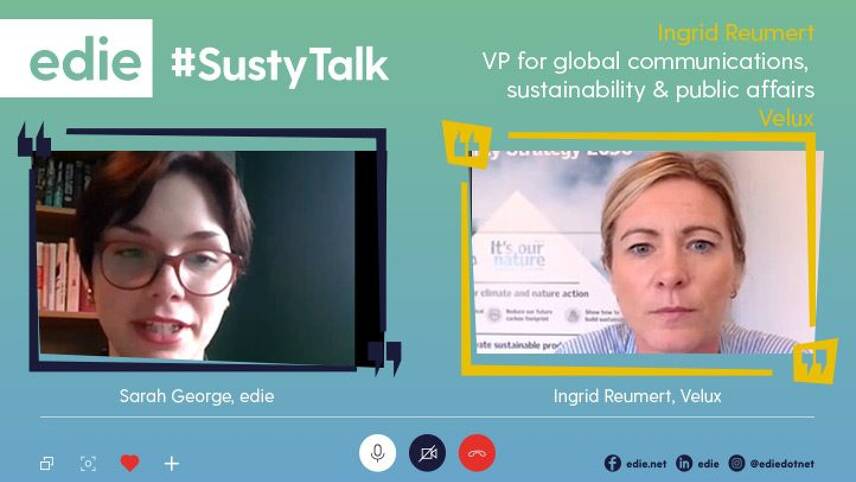Register for free and continue reading
Join our growing army of changemakers and get unlimited access to our premium content
With edie readers working remotely or on furlough, this brand new series of video interviews keeps you connected to the inspirational business leaders who are continuing to drive sustainability and champion climate action from their own homes.
#SustyTalk is all about keeping edie’s loyal readers connected to sustainable business leaders across the world, whilst reminding us all that sustainability and climate action must go on through the current Covid-19 pandemic and beyond.
For this conversation, Reumert discusses the recent announcement from the Velux Group that it has pledged to offset 100% of its carbon emissions in the future and to capture the equivalent of its historical carbon footprint using nature-based climate solutions by 2041.
It has partnered with WWF to achieve the ambition, with the NGO set to use Velux’s funding to scale up afforestation and reforestation initiatives. Projects in Uganda and Myanmar will be backed in the first instance.
Enough carbon will be sequestered through the initiatives to account for Velux’s Scope 1 (direct), Scope 2 (power-related) and Scope 3 (indirect) emissions, under the commitment. As Velux does not have data dating back to its formation in 1941 for all of these sources, it is estimating its lifetime emissions using the Greenhouse Gas Protocol Corporate Standard and having its calculations verified by WWF and The Carbon Trust.
“We were founded in 1941 and of course across all those years we’ve emitted CO2 to the atmosphere,” Reumert said. “We have a responsibility for what we’ve already let out. After 2050 we have to become carbon negative, which means capturing carbon from the atmosphere, we started looking into how we could do that.
“We wanted to deal with not on climate change, but also the biodiversity crisis. The loss of nature gets lost in the climate change debate. We looked if we could find a way to account for our historic emissions but also focusing on biodiversity loss as the best and most sustainable way forward.”
Click here to see our catalogue of #SustyTalk video interviews.
View more coronavirus-related content here.
Want to be featured on a future episode of #SustyTalk? Email newsdesk@fav-house.com.
edie staff



Please login or Register to leave a comment.